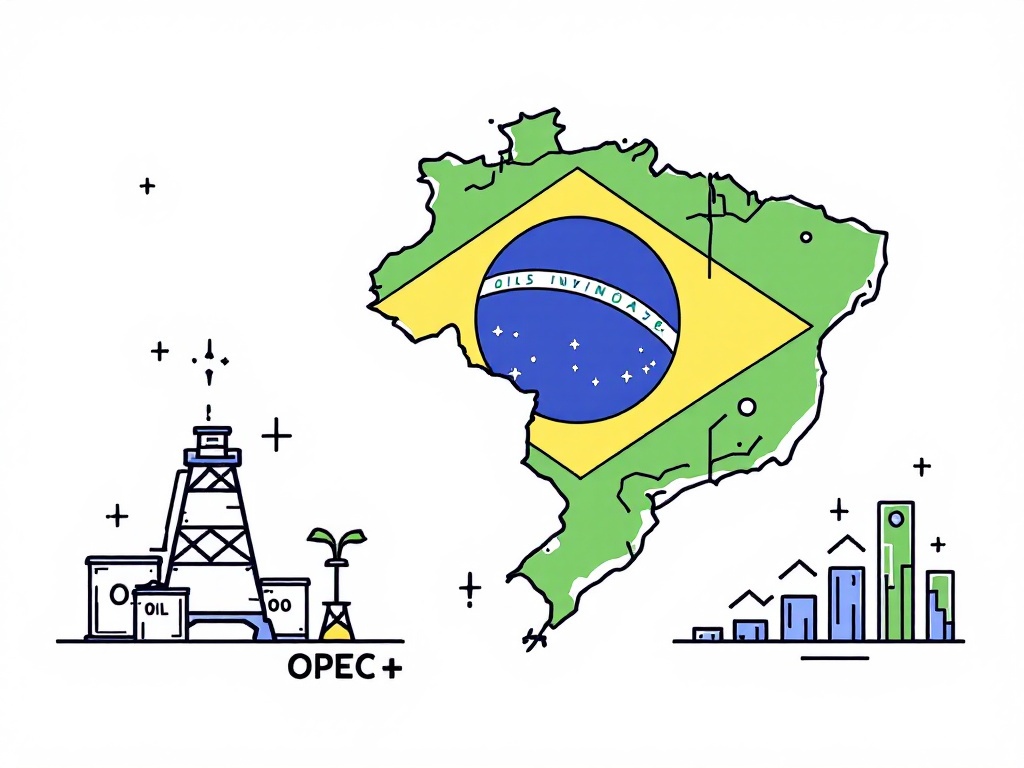Brazil Joins OPEC+ as a Strategic Move in Oil Production

Brasilia, Tuesday, 18 February 2025.
On February 17, 2025, Brazil joined OPEC+, signaling its emergence as a major oil state while preparing to host the UN climate summit in November 2025.
Strategic Position in Global Oil Markets
Brazil’s entrance into OPEC+ comes at a time when the country has established itself as the world’s seventh-largest oil producer, contributing approximately 4.3 million barrels daily and accounting for 4% of global output [1][2][3]. This strategic move follows the country’s remarkable transformation in the energy sector, highlighted by crude oil becoming Brazil’s primary export product in 2024, representing 13.3% of foreign sales and surpassing traditional exports like soy [1][6].
Unique Membership Terms
Mines and Energy Minister Alexandre Silveira has emphasized that Brazil’s participation in OPEC+ will not include binding obligations such as production cuts [1][3]. ‘We should not be ashamed of being oil producers. Brazil needs to grow, develop and create income and jobs,’ Silveira stated [1]. The arrangement positions OPEC+ as a strategic forum for oil-producing nations rather than a restrictive agreement [6].
Environmental Concerns and Climate Commitments
The timing of Brazil’s OPEC+ membership has sparked debate, particularly as the country prepares to host COP30, the UN climate summit, in November 2025 [1][7]. Climate advocates have expressed concern, with Suely Araújo, spokesperson for the Climate Observatory, stating that ‘Brazil’s entrance to any OPEC body is another sign of the government’s setback’ [2][6]. She further emphasized that ‘opening up new areas for fossil fuel exploration indicates that we are choosing solutions from the past in the face of a huge challenge for the present and the future’ [6].
Balancing Growth and Sustainability
President Luiz Inácio Lula da Silva’s administration, which began its term in 2023, is attempting to strike a balance between economic growth and environmental responsibility [1][3]. The government’s strategy involves using new oil revenues to finance a transition to green energy [1]. This approach is further supported by Brazil’s simultaneous membership in the International Energy Agency and the International Renewable Energy Agency, reflecting its growing importance in both conventional and renewable energy sectors [6].